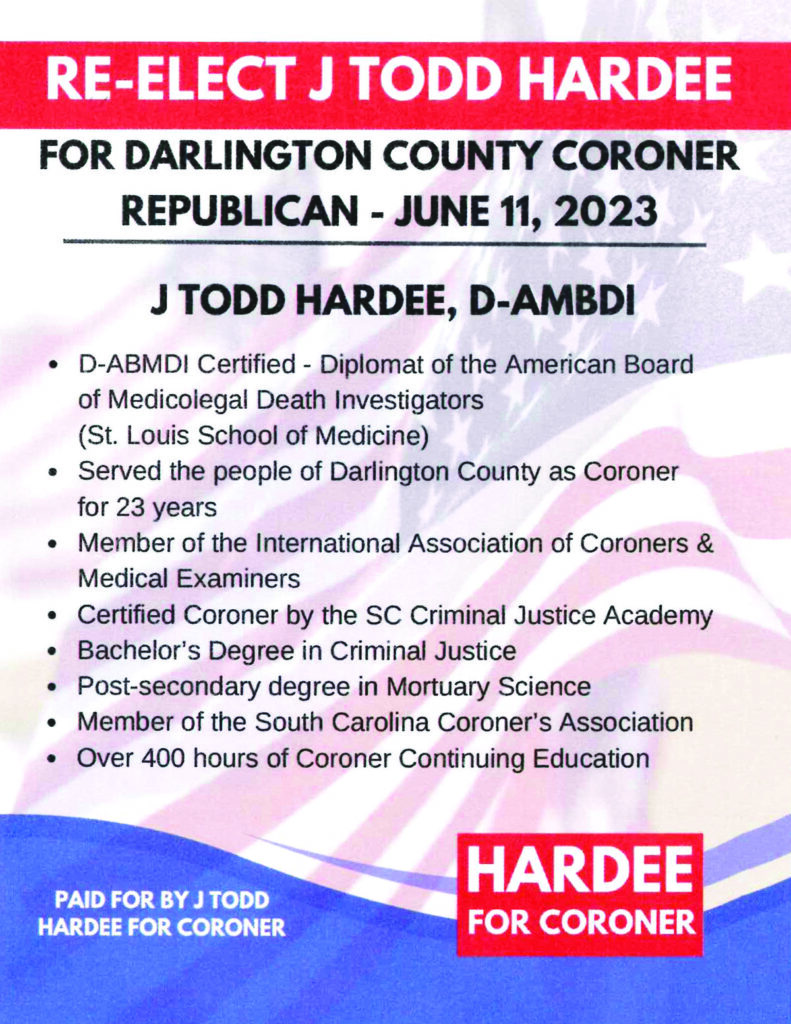Mug shot amendment repelled with help of SCPA members

By Bill Rogers, South Carolina Press Association Executive Director
A major challenge to the First Amendment was repelled recently in the S.C. Senate Judiciary Committee. I believe this decision was prompted by the help of S.C. publishers and editors who let committee members know of their concerns. Thank you. Your calls and emails made the difference.

An amendment offered by Sen. Paul Thurmond would have meant the government could tell newspapers what they could and could not publish on their websites.
With persuasive comments by Sens. Larry Martin and Brad Hutto, Thurmond withdrew his amendment and then immediately offered a similar one. This also was withdrawn after comments by committee leaders.
Part of the argument against the amendments was that newspapers, on their own, do a pretty good job of using stories or attaching notes to stories when charges are dropped or reduced.
We need to keep doing that. That’s only fair.
The bill, S. 255, was originally aimed at mug shot websites that charge citizens hundreds of dollars to take down their mug shots, guilty or not. The sites are really committing extortion and should be stopped. The bill has been sent to the Senate floor with an exemption for newspapers and broadcasters. But Thurmond wanted newspaper sites included.
One of the examples given to the committee was a story and mug shot of the arrest of a well-connected Mt. Pleasant councilman on drunken driving charges. The paper ran the story and a mug shot when he was arrested. Certainly a very legitimate news story and photo. Charges against the man were later dismissed on a technicality (he walked out of the view of the police video cam during the arrest process). The newspaper wrote a story about this dismissal. That should have been the end of it. The first story was part of history and should not be rewritten or removed. It was correct. Thurmond disagrees and he thinks newspapers should be forced to take mug shots and booking data down in such situations.
Editors are regularly getting calls from people asking them to take stories down. “This happened years ago and I am a changed person,” people say when they call to ask that stories of their arrests and even convictions be removed. “You are keeping me from getting a job,” they say.
But newspapers are a current history, and we can’t rewrite history and keep our credibility. Nor should we bow to outside pressure.
When I was a reporter in Roanoke, Va., years ago and covered police and courts, our paper made a good effort to write a brief that charges were dropped if we had previously reported an arrest in a story. Not an easy task today with newsrooms understaffed, but worthwhile.
A great deal of S. 255 dealt with changes in the state’s expungement laws. Many legislators seem intent on expanding expungement and making it easier and cheaper to do.
I think the intent is to remove historic public information that would keep people from getting a job.
It is my opinion that having your name in the paper as having been arrested is more of a problem for many than the actual arrest. The councilman’s case above is likely a good example.
But there are problems with expungement. If I am hiring an employee, I would like to know if they have been arrested and convicted of a crime of moral turpitude. Then I can make a decision about hiring that person. If I want to consider a bad check conviction 10 years ago as no big deal, I can do that. But that should be an employer’s decision, not the government’s, which would hide a person’s criminal history.
Journalistically, a person’s criminal record is a legitimate and important part of an arrest story.
Criminal domestic violence charges are also an area when expungement is a terrible idea. A woman, or her family, should know if “Mr. Right” has used a right hook against a former lover.
We’ll see what happens on the expungement issue. But as of today, it is your decision how to deal with public mug shots and booking information when charges are dropped or reduced. That’s as it should be.


